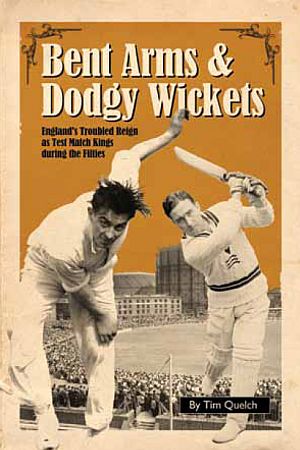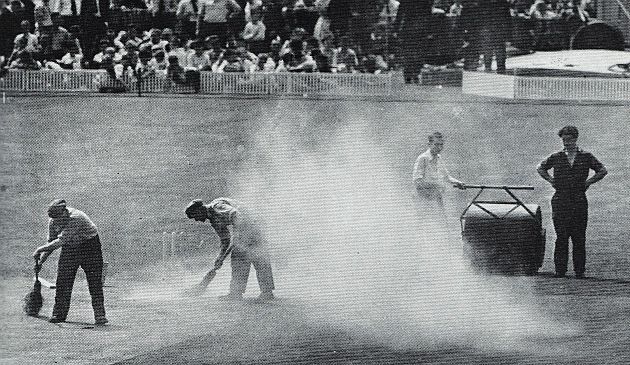 The answer, sadly, is that all three are, or were in Potts' case, victims of Parkinson's Disease. Kennedy was diagnosed with it and was forced to retire as a player at the young age of 32.
The answer, sadly, is that all three are, or were in Potts' case, victims of Parkinson's Disease. Kennedy was diagnosed with it and was forced to retire as a player at the young age of 32.
It's an illness that, thankfully, hasn't hit my family or friends but I do recall how poorly Harry Potts was on the last occasion I spoke to him and I can also recall speaking to his wife Margaret about how difficult a time it was for them all prior to his sad death in January 1996.
Burnley supporter Tim Quelch, author of 'Never Had It So Good', the story of Burnley's 1959/60 Championship season, and 'Underdog!', has this time moved to the game of cricket to try and raise money for Parkinson's(UK) and his latest book, entitled 'Bent Arms and Dodgy Wickets' tells the story of when England were top dogs in the game in the 1950s.
When Andrew Strauss’s team seized the world Test match title in the summer of 2011 they finally recovered what had been lost at the Adelaide Oval in February 1959. England had last been top of the world during the mid to late fifties.
In ‘Bent Arms and Dodgy Wickets’ the story is told of English cricket’s slow recovery from the dislocation of the Second World War, of its time of triumph after Queen Elizabeth II’s Coronation and of its undignified fall from grace five and a half years later.
It is tale of fluctuating fortunes recounted through the memoirs of many of those who took part including: Sir Len Hutton, Denis Compton, Peter May, Colin Cowdrey, Trevor Bailey, Bill Edrich, Fred Trueman, Frank Tyson and Jim Laker for England, Alan Davidson, Ian Meckiff, Ray Lindwall and Keith Miller for Australia, Jackie McGlew and Roy McLean for South Africa, and Sir Clyde Walcott and Sir Everton Weekes for the West Indies.
The title refers not only to sporting controversies of the time – notably suspect bowling actions and poor pitches – but also to the political sensitivities and class constraints impinging upon cricketers’ lives as Britain declined as an imperial power.
Hampered by class snobbery, anachronistic fixations, an uncompetitive domestic game, unreliable playing surfaces and limited coaching, England’s spell in the fitful fifties sun was destined to be temporary. As the late Joe Mercer, a former England football manager, put it: “Tradition is a wonderful friend but a dangerous enemy.”
The book, published by Pitch Publishing, will be available to buy from 29th October (ISBN-13: 9781908051813) and will be available in book shops and can already be pre-ordered online at such as Amazon and WH Smith.
If you've read Tim's previous books and/or have any interest in cricket then this book will be a must for your bookshelf, and with ALL proceeds going to Parkinson's UK you will also be doing your bit to help that cause.
 |
| The dust bowl that was Old Trafford in 1956 |
